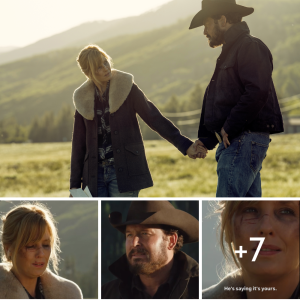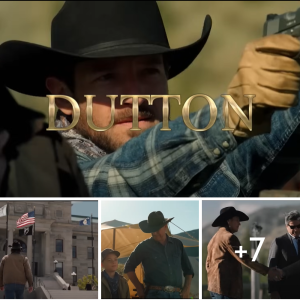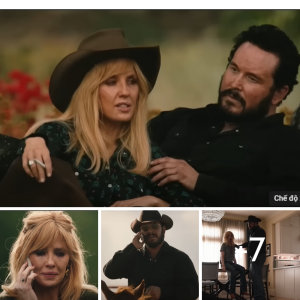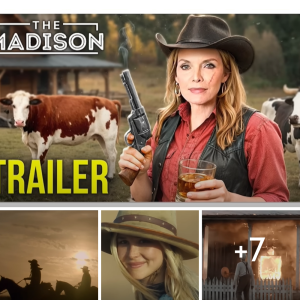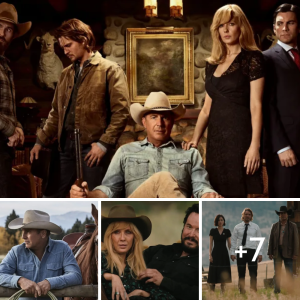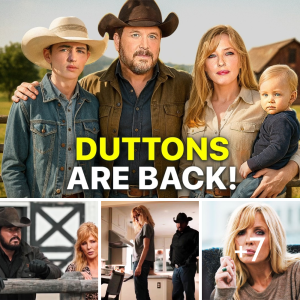In an industry known for playing it safe, Yellowstone creator Taylor Sheridan didn’t just push the boundaries—he set them on fire. From its sun-drenched Montana landscapes to its morally gray characters drenched in blood, loyalty, and land disputes, Yellowstone has never been your average primetime drama. But in a recent jaw-dropping interview, Sheridan finally revealed the raw, unfiltered truth: Yellowstone was never meant to be ordinary.
“It’s punk rock. It’s rebellious. It’s both middle fingers up at TV and Hollywood,” Sheridan confessed in a no-holds-barred sit-down with fellow filmmaker Peter Berg. And suddenly, it all makes sense. The chaos, the contradictions, the emotional gut punches—we’ve been watching a rebellion in real-time. Sheridan wasn’t trying to conform to the glossy prestige TV formula. He was out to destroy it.
From the beginning, Yellowstone refused to be boxed in. Sheridan himself described it as “part pandering, part horse porn at sunset, and part Benny Hill,” a brutally honest take that only he could deliver. It’s that very self-awareness that elevates his work. He knows his audience, and more importantly, he knows how to provoke them. Behind the cowboy hats and cattle lies a savage critique of legacy, power, and the myth of the American frontier
But the most compelling part of Sheridan’s journey? He wasn’t always a titan. He struggled for two decades, barely scraping by, failing auditions, and enduring rejection after rejection. He scored just 390 on the SAT English section, a fact he wears with irony today. Yet instead of breaking him, the failure fueled him. “You take a smart guy with a lot of talent and cage him for 20 years,” Berg said. “He’s just getting hungrier and hungrier—and then you let him out.”
That hunger exploded into Yellowstone. But it wasn’t perfection Sheridan sought—it was truth. After directing Wind River, he admitted he abandoned rigid shot lists. A surprise blizzard on set forced him to improvise. Since then, he’s leaned into unpredictability—real weather, real emotions, real chaos. It’s this improvisational spirit that bleeds into Yellowstone’s DNA.
directing Wind River, he admitted he abandoned rigid shot lists. A surprise blizzard on set forced him to improvise. Since then, he’s leaned into unpredictability—real weather, real emotions, real chaos. It’s this improvisational spirit that bleeds into Yellowstone’s DNA.
Sheridan’s critics call the show chaotic, sometimes absurd. He embraces it. “A great writer called it my horse opera,” he said. “It doesn’t make sense, and it’s not trying to. But it’s a window into a world.” And what a world it is—one that now includes spin-offs like 1883 and 1923, with more on the way. Sheridan, once dismissed, is now the most powerful producer on television.
What Yellowstone proves is simple but profound: you don’t need to follow the rules to make great art. You just need guts, grit, and a refusal to back down. Sheridan gave us more than a Western—he gave us a war cry. And the world is still listening.
